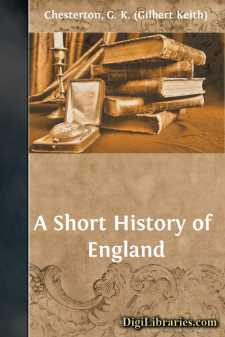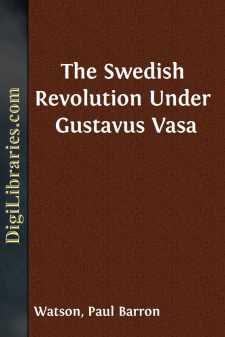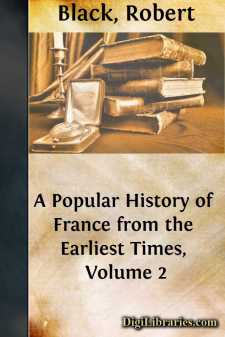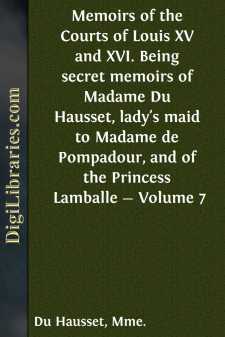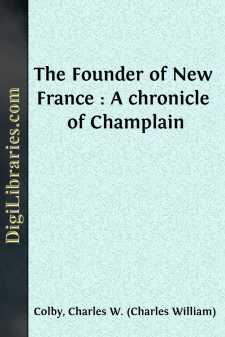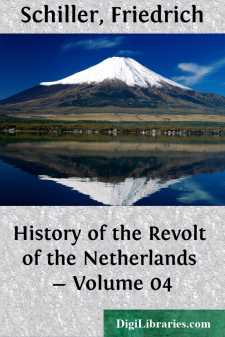History
- Africa 30
- Americas (North Central South West Indies) 50
- Ancient 68
- Asia 58
- Australia & New Zealand 8
- Canada 41
- Caribbean & West Indies 1
- Civilization 20
- Eastern Europe 12
- Europe 310
- Expeditions & Discoveries 60
- General 77
- Historical Geography 1
- Jewish 9
- Latin America 3
- Medieval 8
- Middle East 14
- Military 248
- Revolutionary 8
- Study & Teaching 5
- United States 353
- Western Europe 56
- World 13
History Books
Sort by:
INTRODUCTION It will be very reasonably asked why I should consent, though upon a sort of challenge, to write even a popular essay in English history, who make no pretence to particular scholarship and am merely a member of the public. The answer is that I know just enough to know one thing: that a history from the standpoint of a member of the public has not been written. What we call the popular...
more...
INTRODUCTION TO THE REVISED VOLUME. The third volume of the American Eloquence is devoted to the continuation of the slavery controversy and to the progress of the secession movement which culminated in civil war. To the speeches of the former edition of the volume have been added: Everett on the Nebraska bill; Benjamin on the Property Doctrine and Slavery in the Territories; Lincoln on the Dred Scott...
more...
by:
John Gierlow
INTRODUCTION. Lewis Holberg, the author of the Narrative of Niels Klim, was the most eminent writer among the Danes in the eighteenth century. His works show a surprising versatility of genius, comprising Histories and Treatises on Jurisprudence, together with Satires and Comedies. He was by birth a Norwegian, but was educated at the University at Copenhagen in Denmark. Soon after receiving a...
more...
PREFACE. NO name in history lies deeper in Swedish hearts than the name Gustavus Vasa. Liberator of Sweden from the yoke of Denmark, and founder of one of the foremost dynasties of Europe, his people during more than three centuries have looked back fondly to the figure of their great ruler, and cherished with tender reverence every incident in his romantic history. This enthusiasm for Gustavus Vasa is...
more...
There is no one of the Pioneers of this continent whose achievements equal those of the Chevalier Robert de la Salle. He passed over thousands of miles of lakes and rivers in the birch canoe. He traversed countless leagues of prairie and forest, on foot, guided by the moccasined Indian, threading trails which the white man's foot had never trod, and penetrating the villages and the wigwams of...
more...
by:
Henry P. Bowie
USIC was written in a scrawl impossible to decipher up to the thirteenth century, when Plain Song (Plain Chant) made its appearance in square and diamond-shaped notes. The graduals and introits had not yet been reduced to bars, but the songs of the troubadours appear to have been in bars of three beats with the accent on the feeble note of each bar. However, the theory that this bar of three beats or...
more...
by:
Robert Black
CHAPTER XVII. THE CRUSADES, THEIR DECLINE AND END. In the month of August, 1099, the Crusade, to judge by appearances, had attained its object. Jerusalem was in the hands of the Christians, and they had set up in it a king, the most pious and most disinterested of the crusaders. Close to this ancient kingdom were growing up likewise, in the two chief cities of Syria and Mesopotamia, Antioch and Edessa,...
more...
by:
Mme. Du Hausset
Editor in continuation: I am again, for this and the following chapter, compelled to resume the pen in my own person, and quit the more agreeable office of a transcriber for my illustrious patroness. I have already mentioned that the Princesse de Lamballe, on first returning from England to France, anticipated great advantages from the recall of the emigrants. The desertion of France by so many of the...
more...
CHAPTER I. CHAMPLAIN'S EARLY YEARS Were there a 'Who's Who in History' its chronicle of Champlain's life and deeds would run as follows: Champlain, Samuel de. Explorer, geographer, and colonizer. Born in 1567 at Brouage, a village on the Bay of Biscay. Belonged by parentage to the lesser gentry of Saintonge. In boyhood became imbued with a love of the sea, but also served as a...
more...
The two counts were a few weeks after their arrest conveyed to Ghent under an escort of three thousand Spaniards, where they were confined in the citadel for more than eight months. Their trial commenced in due form before the council of twelve, and the solicitor-general, John Du Bois, conducted the proceedings. The indictment against Egmont consisted of ninety counts, and that against Horn of sixty....
more...


